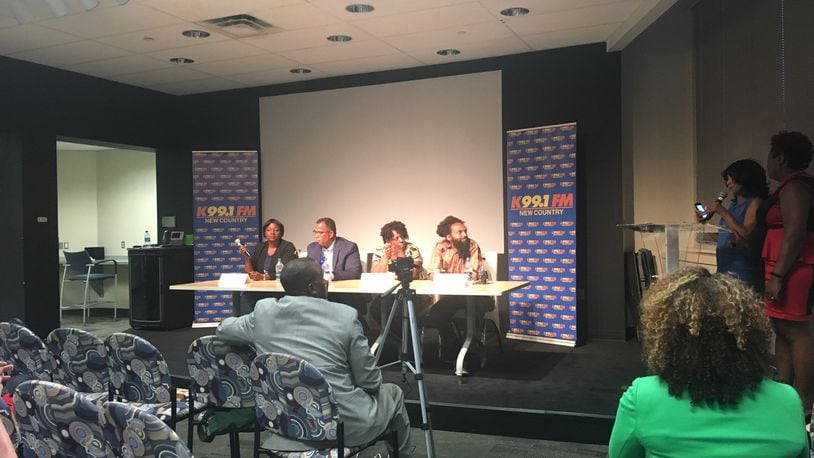The free event was part of the National Association of Black Journalists’ Black Male Media Project, an initiative dedicated to promoting positive media depictions of black men.
MORE POPULAR STORIES: The Path Forward: The region must rally to fix the Dayton Public Schools
Panelists described several ways news media could be promoting bias against black men. Some panelists argued that local news coverage of predominantly black parts of Dayton focused on crime, while coverage of wealthier suburbs tended to focus on positive events in those communities. Journalists should be trying harder to find positive stories about people in West Dayton, Montgomery County Juvenile Court Magistrate Gerald Parker said.
“Every black man grew up having to work twice as hard to succeed,” Parker said. “You have to put the work in to find them.”
Panelist and FOX 45 reporter Rhonda Moore said journalists aren’t always aware of everything happening in their communities, and that when people learn about people doing good work in their communities they should contact the media to make sure those stories get covered.
Dayton Assistant Police Chief Mark Ecton was part of a second panel. In response to questions about the department’s relationship with black residents, he said the Dayton Police Department is working to recruit more black officers into its ranks and build community relationships. The department has a 12-week citizen police academy to teach residents about policing and hosts several community engagement events.
Panelist and community activist Amaha Sellassie said that in addition to those efforts, police departments should offer better training and reexamine their policies. Panelist Bakari Lumumba, a professor at Wright State University, previously served as a park ranger. He said his experience there taught him there was little justice for police who abused their powers.
“It’s act first, then sweep it under the rug,” he said.
Although the panelists were concerned about discrimination and the challenges their communities faced, they described the successes of young black people they knew. Sellassie said he believes media portrayals of black men are growing more positive, and social media gives people an opportunity to control and shape their own narratives.
“We have to tell our own stories because if we don’t, someone else is going to tell them for us,” he said.
About the Author
